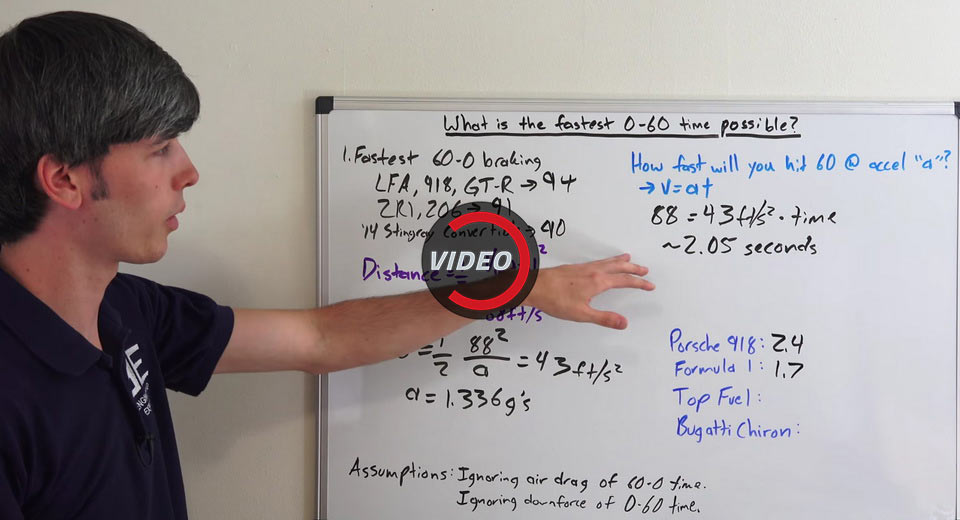When it comes to speed, accelerating from 0 to 60mph (or 100km/h) can be just as important as maximum velocity, if you care about bragging rights, that is.
Which raises a good question: what is the absolute fastest 0-60 mph (96 km/h) time possible? Well, thanks to Engineering Explained, we get to find out, as mathematics do all the heavy lifting.
It’s important to mention that the calculations were done for regular everyday cars/supercars, with regular tires, not a bobsled with rockets strapped on or ultra-light go-karts with all sorts of crazy aerodynamic modifications.
You should probably sit through the whole video if you like numbers and want to understand the process behind these results, though if you just want to know the final number, it’s 2.05 seconds.
That’s how quick a supercar/hypercar should be able to ever accelerate from a stand still to 60 mph (88 ft/second). It’s also important to note that the number is greatly influenced by the peak acceleration of the tires, so it’s not just about instant torque and letting your ultra-quick EV loose.
In other words, it’s mathematically plausible that the “0-60” race between automakers will stop when super and hypercars reach the 2-second mark – which is a little bit like knowing the future.



